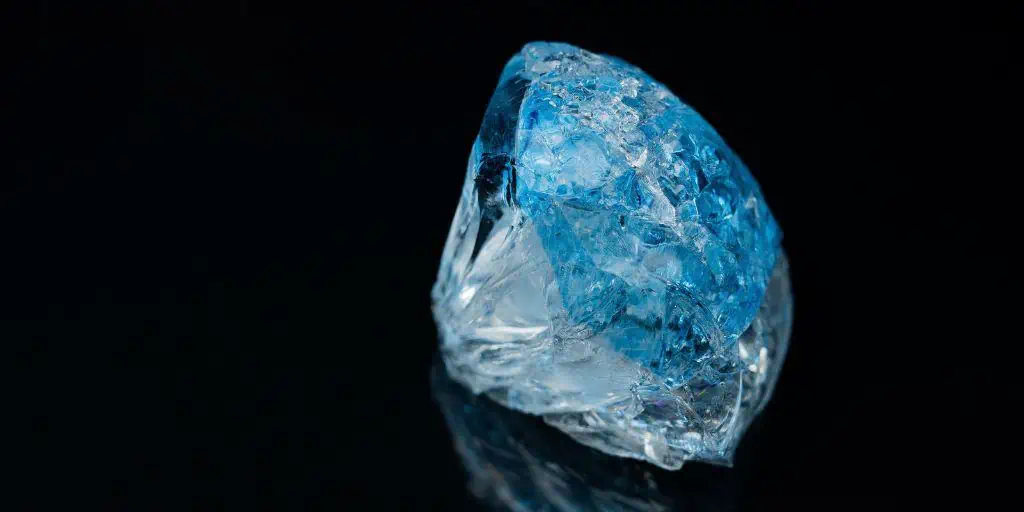What Are Mineral Rights?
REtipster does not provide legal advice. The information in this article can be impacted by many unique variables. Always consult with a qualified legal professional before taking action.
Shortcuts
- Mineral rights are the legal ownership and control over any naturally occurring resources beneath a property’s surface.
- Mineral rights allow the owner to remove, use, and sell valuable minerals found beneath a parcel of land.
- Mineral rights can be separate from surface rights, so one person can own the minerals while another owns the surface rights above.
- Common examples of minerals a person may own the rights to are oil, natural gas, coal, gold, silver, copper, iron, and lead.
- Claiming mineral rights can be complex as the process often changes based on the situation.
How Do Mineral Rights Work?
Generally speaking, the landowner also owns the minerals beneath it. However, surface rights and mineral rights can be separate. So, one person can own the minerals while another owns the land’s surface[1].
If a person owns mineral rights to land, they can extract and sell minerals from it[2], such as oil, gas, coal, gold, or other valuable resources. They can lease or sell these rights to a mining or exploration company, which can then sell the minerals for profit.
The land’s owner usually gets paid for letting mineral extraction happen. This can be through royalties or lease payments made upfront. How much they get depends on the lease terms and the value of the extracted minerals.
Owning and extracting minerals can be complex, involving legal and regulatory issues. For example, environmental rules may limit mineral extraction, and there can be legal disputes over who owns the rights[3].
Understanding mineral rights is key when buying property, especially in places with known mineral deposits. Before buying a property, it’s crucial to check who owns the mineral rights and the limitations, if any, on their extraction.
A real estate attorney can help with mineral rights issues and make sure the buyer knows the rights and limits tied to the property.
RELATED: What Every Land Investor Should Know About Mineral Rights
Examples of Minerals a Person May Own the Rights To
Minerals can vary from precious metals like gold and silver to simple industrial ones like sand and gravel.
Here are common examples of minerals[4] a person may have rights to:
- Oil — This mineral is a liquid fossil fuel often found underground and extracted by drilling.
- Natural Gas — This is a naturally colorless and odorless gas mainly made of methane. It forms from the same organic materials as oil underground.
- Coal — Coal is a sedimentary rock formed from ancient plant remains. It’s mainly made of carbon and other minerals and compounds. It’s mostly used as fuel for generating electricity.
- Gold — Gold is a highly valued mineral. It’s a yellow, dense, and soft metal known for its rarity and beauty. It’s usually found in veins or placer deposits in rocks and sediment.
- Silver — Silver is a precious metal found in the earth’s crust. It’s a shiny, white, and ductile metal commonly used in jewelry and coins. It’s usually found in veins or deposits in different types of rocks.
- Copper — Copper is a reddish-brown metal known for its excellent conductivity and flexibility. It’s typically found in sulfide ores in various kinds of rocks.
- Iron — Iron is a silver-gray metal that is highly magnetic and malleable. It’s commonly found in the earth’s crust and different types of rocks.
- Lead — Lead is a dense, malleable, and bluish-gray metal. It’s often found in various types of rocks and extracted from lead ores. Lead is a key part of battery production, and its corrosion resistance makes it useful in many industries.

Lead is a primary component of batteries (such as a car battery, shown here).
How Do I Claim Mineral Rights?
It’s crucial to consult a lawyer who specializes in mineral rights law when claiming these rights[5]. But the process can be complex and depends on the case’s specific circumstances[6].
Here are some general steps to claim these rights:
- Determine ownership — The first step is to find out who owns the mineral rights, typically by performing a title search[7].
- Review existing contracts — If there are any contracts related to mineral rights, carefully review them to understand any legal rights.
- File a claim — If you think you have a legal claim to the mineral rights, file a claim with the right government agency.
- Negotiate with other parties — It’s important to know if there are other parties when claiming mineral rights.
- Secure the rights — Once you’ve established a legal claim to the mineral rights, take other steps to secure those rights.
Mineral Rights and Related Terms
While “mineral rights” is the term most often used, other words can describe this type of ownership.
One synonym is “mineral interest,” which means the right to explore for and produce minerals from a specific piece of land. Another is “subsurface rights,” referring to the legal rights to the minerals below the earth’s surface[8].
Other synonyms for mineral rights are “mineral estate” and “mineral ownership.” These terms refer to the rights associated with the minerals beneath a particular piece of land, including the right to lease, sell, or develop those minerals[9].
What Are Mineral Rights and Royalty Rights?
Mineral rights and royalty rights are legal rights to owning resources beneath the ground.
Mineral rights are the rights to explore, extract, and sell underground resources like oil, gas, coal, gold, and silver. If a person owns mineral rights to property, they can legally lease or sell those rights for exploration and extraction.
Meanwhile, royalty rights give the holder a share of the revenue from extracting and selling minerals from a property. This means a person can still earn from mineral extraction, even without owning the mineral rights, if they hold the royalty rights.
In some cases, mineral and royalty rights are separate from the surface rights of a property. This can lead to different parties owning the mineral, royalty, and surface rights, creating complex legal and financial setups, especially in resource-rich areas[10].
Sources
- Dehan, A. (2023, February 18.) How To Understand Your Mineral Rights. Rocket Mortgage. Retrieved from https://www.rocketmortgage.com/learn/mineral-rights
- Fernando, J. (2021, May 21.) Mineral Rights. Investopedia. Retrieved from https://www.investopedia.com/terms/m/mineral-rights.asp
- What are environmental regulations on mining activities? (n.d.) American Geosciences Institute. Retrieved from https://www.americangeosciences.org/critical-issues/faq/what-are-regulations-mining-activities
- Ross, B. (n.d.) Who Owns the Minerals Under Your Property? Nolo. Retrieved from https://www.nolo.com/legal-encyclopedia/who-owns-the-minerals-under-your-property.html
- King, H. (n.d.) Mineral Rights. Geology.com. Retrieved from https://geology.com/articles/mineral-rights.shtml
- Moore, R. (2023, February 6.) What are Mineral Rights and How Do They Work? – Different Types of Ownerships and Trading in 2023. Pheasant. Retrieved from https://www.pheasantenergy.com/mineral-rights/
- How Do I Find Out If I Own the Minerals Under My Land? (2023, January 25.) LandGate Resources. Retrieved from https://landgate.com/news/2023/01/25/how-do-i-find-out-if-i-own-the-minerals-under-my-land/
- Mineral interest definition. (2022, September 10.) Accounting Tools. Retrieved from https://www.accountingtools.com/articles/mineral-interest
- Mineral Estate Definition. (n.d.) Law Insider. Retrieved from https://www.lawinsider.com/dictionary/mineral-estate
- Miller, C. (2022, June 20.) Mineral Interest vs. Royalty Interest. Lovell, Lovell, Isern & Farabough, LLP. Retrieved from https://www.lovell-law.net/blog/business-litigation/mineral-interest-vs-royalty-interest/







